Science For Diplomacy: UZH Explores Switzerland’s Role in a Changing World
On December 3, UZH hosted the inaugural event of its newly launched event series “UZH Science for Diplomacy”. This event series is an initiative aimed at bridging the worlds of science and diplomacy. Under the subtopic “A closer look at Switzerland”, experts and diplomatic representatives explored pressing issues such as neutrality, democratic transformation, and inequality, offering fresh perspectives on Switzerland's global role.
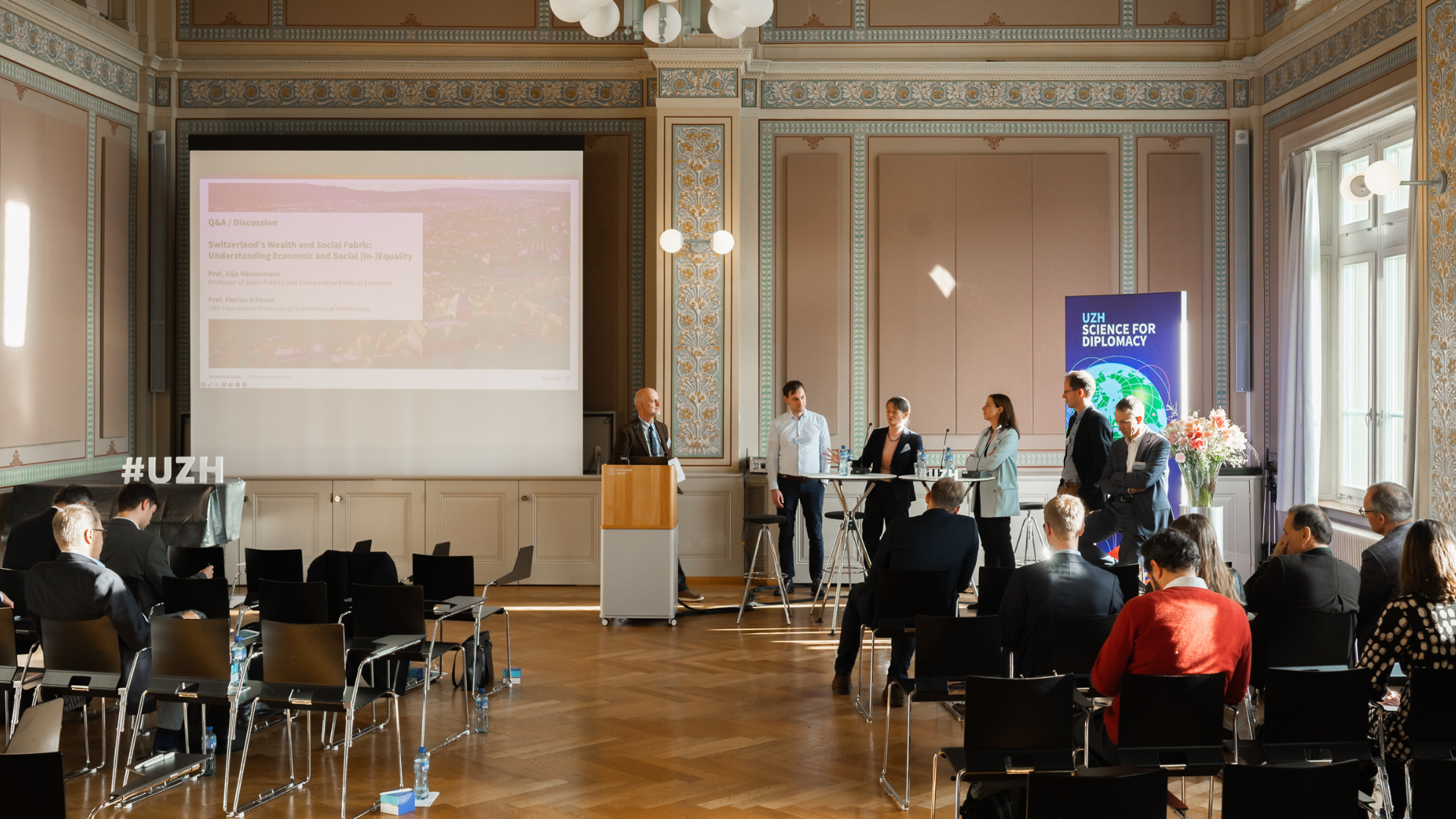
Questions such as “What does the shifting geopolitical landscape mean for Switzerland's neutrality?”, “What are the challenges to Swiss democracy in today's world?” or “Which factors of economic and social (in-)equality are shaping the Swiss society?”, were discussed.
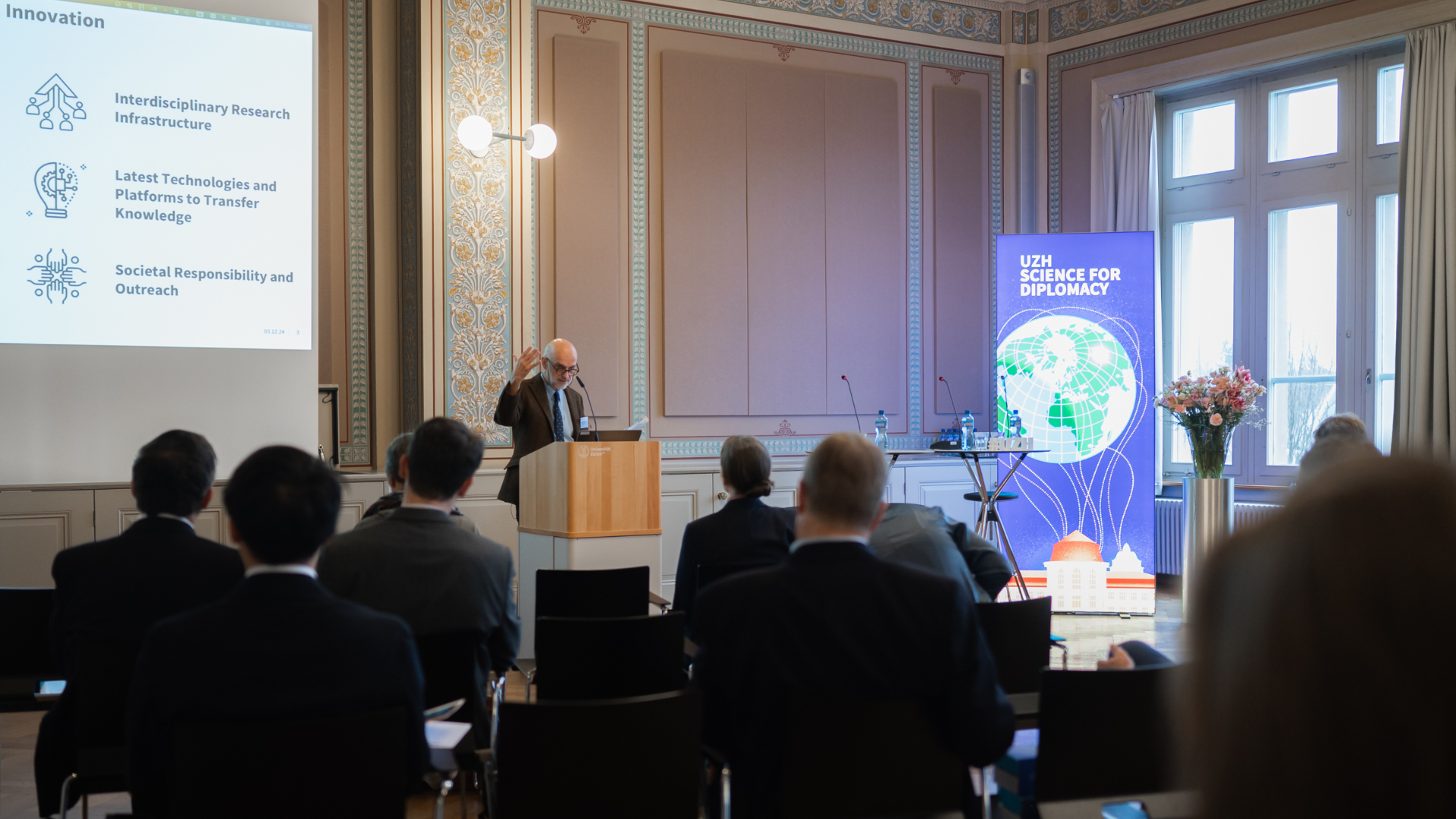
The event, moderated by Prof. Francis Cheneval, Professor of Political Philosophy, explored key dimensions of Switzerland’s identity, from its neutrality in a shifting geopolitical landscape to the transformation of its democratic institutions and its economic and social inequalities.
Switzerland’s neutrality: Caught between tradition and modernity
The first session, led by Prof. Helen Keller, Professor of Public Law and European Public International Law and Prof. Stefanie Walter, Professor of International Relations and Political Economy, provided a deep dive into the challenges facing Switzerland's historic stance on neutrality. Prof. Keller examined how the war in Ukraine and global tensions have put pressure on the concept of neutrality, particularly in situations where international peace is at stake, but mechanisms like the UN Security Council are gridlocked.
Prof. Walter complemented this analysis by comparing Switzerland’s neutrality with other neutral states, highlighting the shifting perceptions among both elites and the public. “We’re at a turning point,” she explained. “Switzerland must navigate its neutrality carefully in the face of growing geopolitical pressures.” On the question whether Switzerland has given up on Neutrality with regards to the war in Ukraine, Prof. Walter gives a clear statement: “No! As an UN member, Switzerland is required to impose UN sanctions.”
These explanations were rounded off with a Q&A session with the guests, where there was a lively discussion about the gray areas of Switzerland's neutrality.
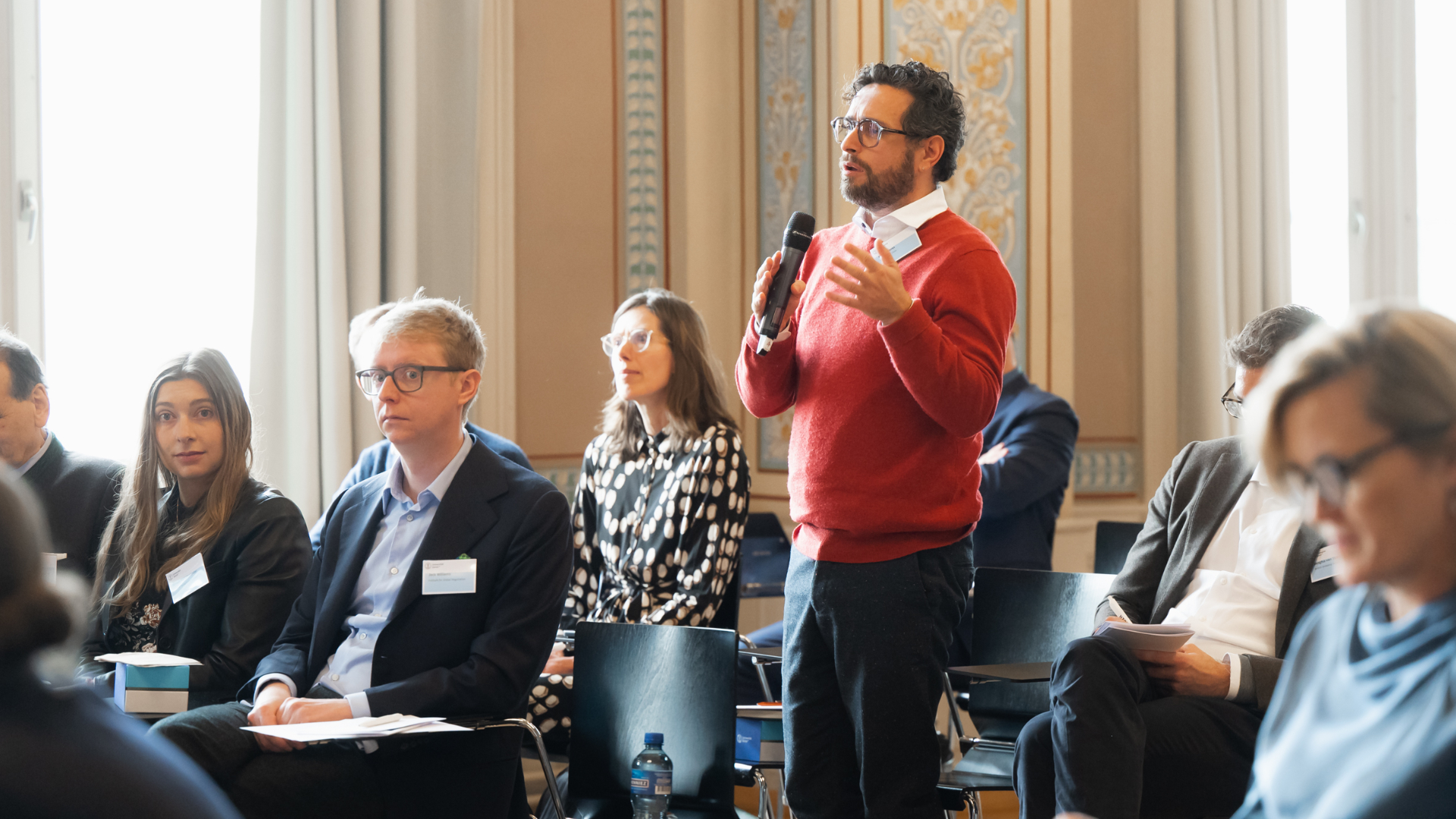
Swiss democracy: Tradition meets transformation
In the second session, participants delved into the evolving nature of Swiss democracy. UZH researchers tackled the biggest challenges for Switzerland’s democracy in today’s world.
Prof. Lorenz Langer, Assistant Professor of Public Law and Public International Law, highlighted the tensions between international law and national sovereignty, calling for a broader comparative perspective to address these challenges.
Prof. Daniel Kübler, Professor of Democracy and Public Governance, raised concerns about the quality of direct democracy and frequent public votes, noting that “deliberative processes are often overshadowed by emotionally driven campaigns.”
Meanwhile, Prof. Silja Häusermann, Professor of Swiss Politics and Comparative Political Economy, questioned whether the increasing reliance on popular votes might signal underlying dysfunctions in Swiss governance. “The system is failing to make the decisions that it is supposed to make”, she notes.
Adding a digital lens to the discussion, Prof. Karsten Donnay, Assistant Professor of Political Behavior and Digital Media, addressed the slow pace of digital transformation in Switzerland. He emphasized the need for clear and effective regulations, cautioning against placing undue burdens on citizens due to governmental indecision.
During a one-hour lunch break, the guests and UZH researchers had the opportunity to discuss the topics in greater depth over lunch.
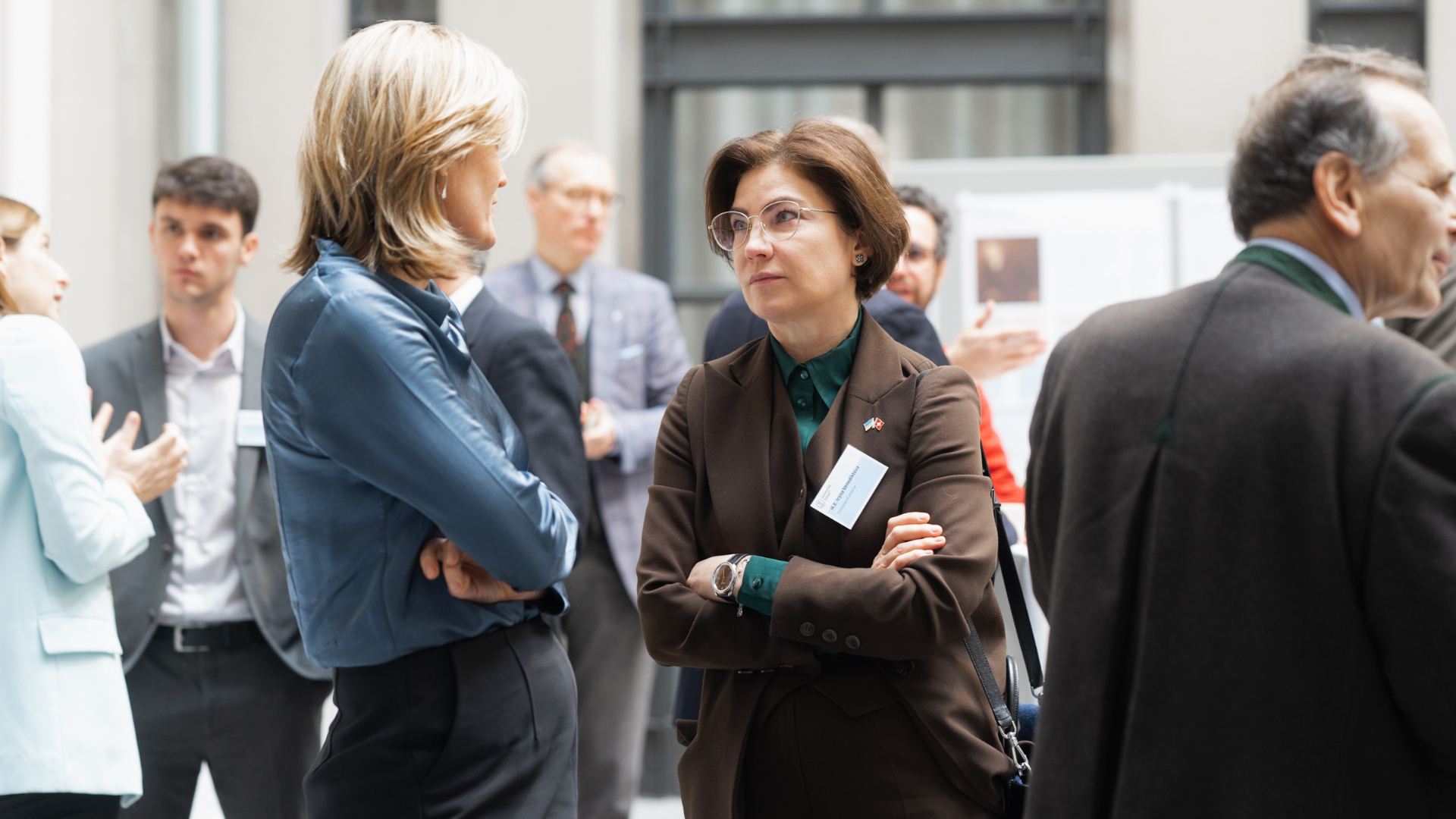
Understanding economic and social inequality
In the afternoon, the final session shifted focus to Switzerland’s economic and social fabric, with insights from Prof. Silja Häusermann and Prof. Florian Scheuer, UBS Professor of Economics of Institutions.
Prof. Häusermann explored the paradox of Switzerland’s welfare state: despite its robust direct democracy, redistribution remains limited, favoring middle-class-oriented policies over broader equality measures.
Prof. Scheuer traced the historical evolution of income and wealth inequality, emphasizing the influence of factors such as asset prices, capital gains, and taxation policies. “Switzerland’s wealth distribution is shaped by long-term structural trends,” he noted, “which require careful analysis to address emerging disparities.”
Building bridges through science
The event concluded with an open discussion and a campus tour showcasing UZH through a student’s perspective. Reflecting on the day, Prof. Francis Cheneval remarked: “Events like these exemplify the power of academic dialogue to inform and inspire solutions to pressing global issues. By connecting science and diplomacy, we aim to foster mutual understanding and collaboration.”
As Switzerland continues to navigate its role in a rapidly changing world, initiatives like "UZH Science For Diplomacy" reaffirm the importance of combining rigorous academic research with a commitment to global engagement.
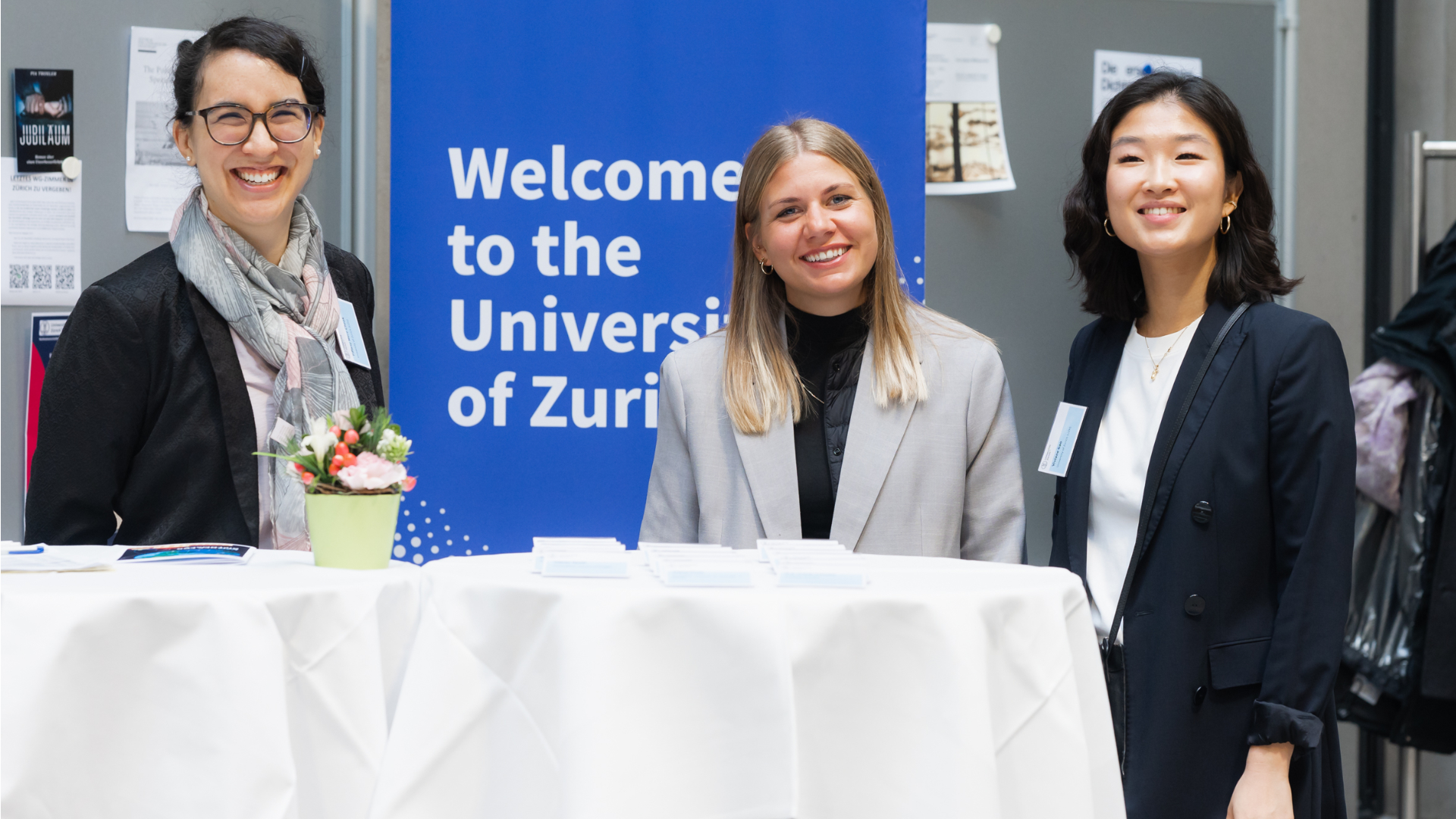
Aline Spescha